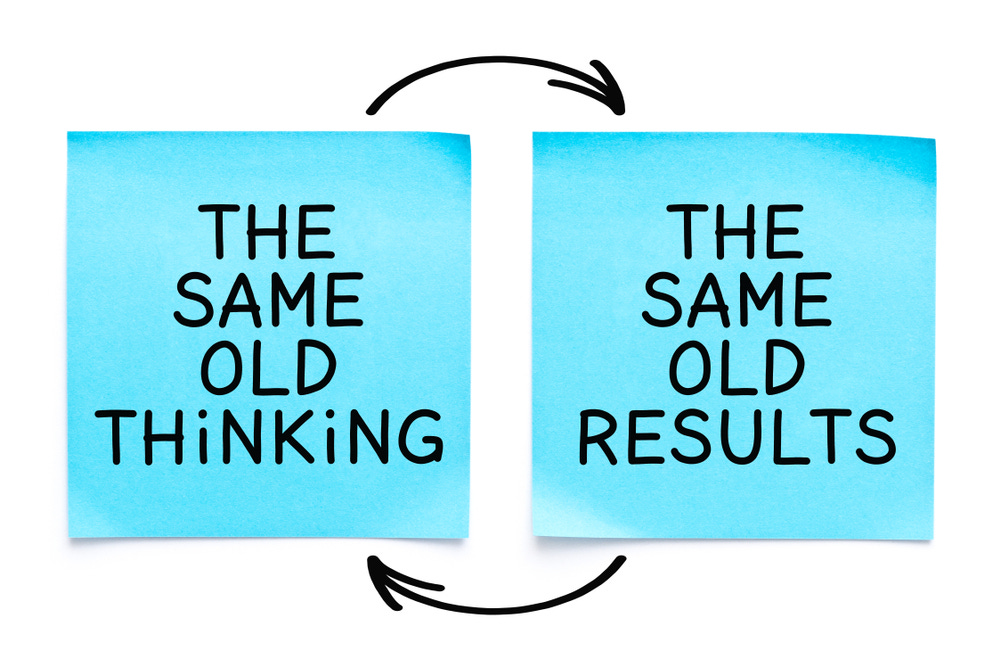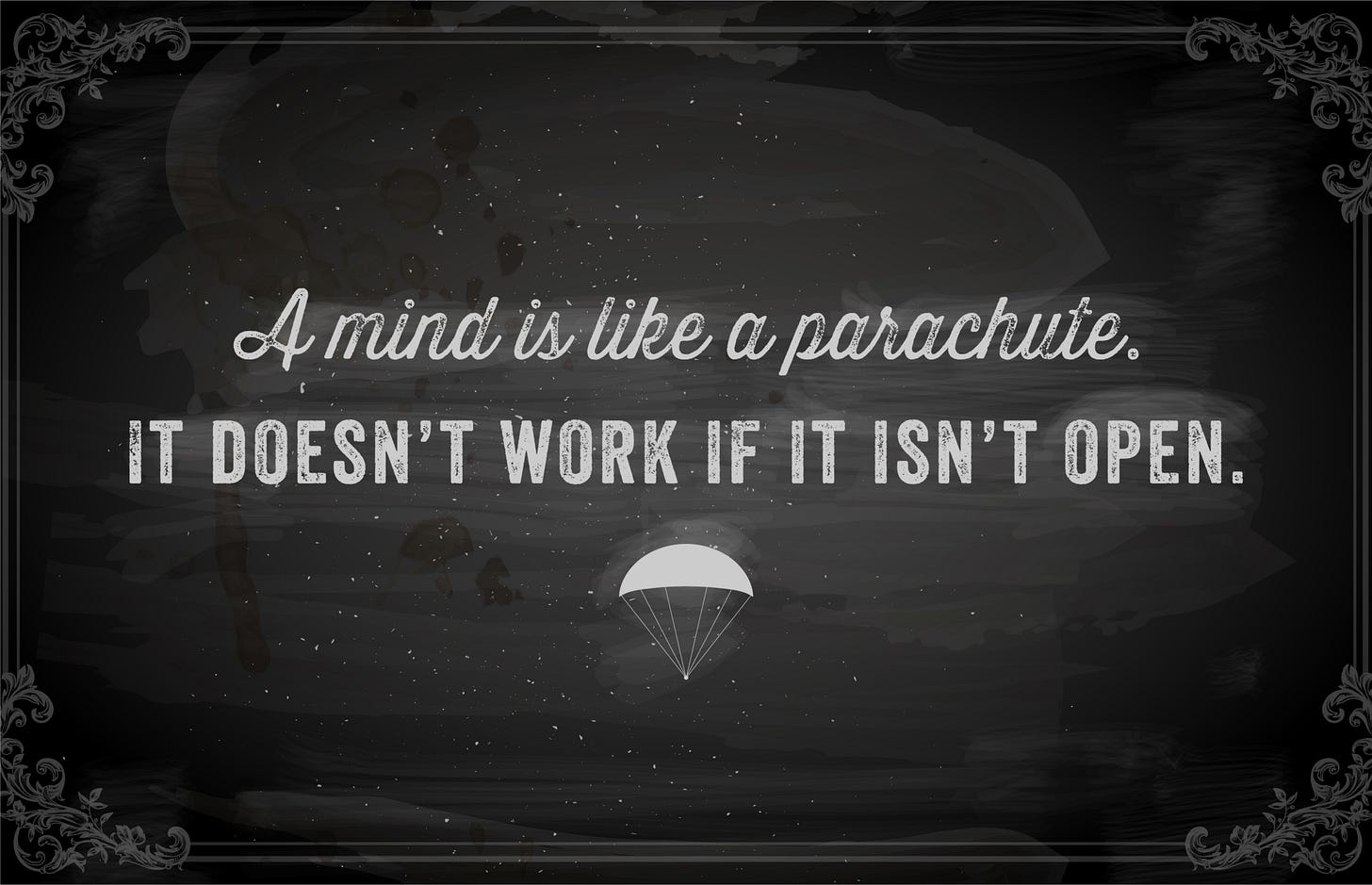Futures Mindsets
Some thoughts
Mindsets and Assumptions
When we have conversations about our futures, we are constructing narratives about how our organisations operate today, how we want them to operate in the future, and how to get to that future. These narratives are stories that help us recall key messages and make meaning of change. Some of these narratives are written down in a plan and some become tacit - the accepted way of 'doing things around here'. When they are focused on futures, these conversations can produce a form of collective futures intelligence, informing our actions and decisions to build new futures for the organisation. It can begin to construct a futures mindset.
Every conversation we have, every narrative we construct, every decision we make, every judgement about which strategic actions to take today are all informed by individual and organisational beliefs, assumptions, and cognitive biases about what futures are accepted and which are rejected. Collectively, these assumptions and beliefs generate organisational cultures and ways of operating that are either open or closed to the future.
Why does this happen? Our brains are programmed to look for confirming evidence so it tends to dismiss what doesn't fit existing patterns. We can be misled; we can miss changes in front of our eyes. Play this video for an example of this and be careful to follow the instructions you will hear at the beginning.
The Selective Attention Test Video
You may have seen this video before. Because you are told to watch the people in the white tops, your mind misses the gorilla passing through the space. If you watch the video again now, you will see the gorilla - because you know what you are looking for. The same applies to how we think about futures - we assume we are missing nothing, but when it's pointed out that we are, we are alert and and will never miss it again - as long as our minds our open to the future.
If we are trapped by our assumptions and biases, then no matter what we are told, if we aren't willing to let the message past our assumption walls, we will never change our thinking about what constitutes valid and credible change - until it arrives on your doorstep and you have no time to think, just react.
Assumption Walls
The only way to challenge beliefs and assumptions about the future is to understand the nature of our mindsets - in particular, what we believe reality is or is not. This is about your ontology - what can be said to exist and what categories we use to make sense of what exists. In other words, what you believe to be real or not and how you make sense of your reality. If something clashes with your view of reality, you have hit what I call an assumption wall, a brick wall in your thinking that you can choose to back away from and test the wall for validity. We all have them.
If you are a scientist or a statistician for example, your reality will be informed and bounded by data, experiment, and proof. You will probably find it hard to accept more qualitative explanations of reality and spiritual interpretations will not get past your assumption walls. If you believe the future is a thing to be observed, you will be looking for ways to reduce uncertainty and complexity to today's knowable forms. You will be using convergent thinking, seeking the right answer.
But ... there are no facts about our futures. They are unknowable have no data, no certainty. Just complexity, uncertainty and messy spaces. And this makes us uneasy - we tend to seek certainty, and we seek answers that match our current understanding of reality. I believe that everyone of us knows that our realities are shifting in front of our eyes today, we know in our bones that our futures will not be more of the reality we classify as today.
Yet we continue to talk about future challenges and apply today's thinking to them. Does it work? Not often. Our assumptions and cognitive biases so useful today are very unlikely to be useful in the same way in the future - in this space, when we are asked to think about the future, we are often heard to utter - that is ridiculous, that will never happen, where is your data to back that up? We are closed to our futures.
Instead, we need to cultivate our imaginations to reframe the present. We need a new mindset, a futures mindset, that lets us seek out our futures as something to be engaged with, explored and nurtured not defined or managed, explored, challenged and tested for validity and relevance for yourselves and your organisation. Those futures are unlikely to emerge in the form we define in the present. Instead, the only thing we can do is seek the new in our thinking today.
In this space, we recognise the power of our assumptions and challenge them for validity when they emerge. We might be right but until we have explored what would have to happen to prove us right, we will keep an open mind. We are heard to utter something like: let's talk about that a bit more, what if this happened though, how might that look? We are open to our futured.
Building A Futures Mindset
Building a futures mindset means that all of us at some time, to some degree, will need to break down an assumption wall or two. This means first understanding our worldviews, the construct from which our assumptions emerge. This is an individual task because no one else can change how we think or make us break down an assumption wall. People will try, but until we decide to change our thinking, nothing anyone else says will make a real difference.
So, what is the difference between worldviews and mindsets?
Worldviews are precast ideas about reality. They're deeply unconscious presuppositions about the ways in which the world works that people, both individually and collectively, hold as foregone conclusions, existential presupposition, and unquestionable truths. Worldviews are our cognitive platforms; The conceptual frameworks we us to understand and relate to the universe, our world, and our lives. Without them we couldn’t survive. Worldviews & Mindsets-Transformational Learning Opportunities
Worldviews are fundamental cognitive structures. They exist at an individual and cultural levels. They shape our beliefs and values about the world and the mindsets we construct to act in our realities.
It was harder work finding a clear definition of mindset because it’s a term that is very popular among professionals who use shifting mindsets as their work. That’s fine but what exactly is a mindset and where does it come from? I found this definition that made sense:
Mind-sets are those collection of beliefs and thoughts that make up the mental attitude, inclination, habit or disposition that predetermines a person’s interpretations and responses to events, circumstances and situations. What is a Mindset? (sourcesofinsight.com)
And our worldviews shape our mindsets which shape our actions. Check out the Worldviews category for more posts on worldviews.




